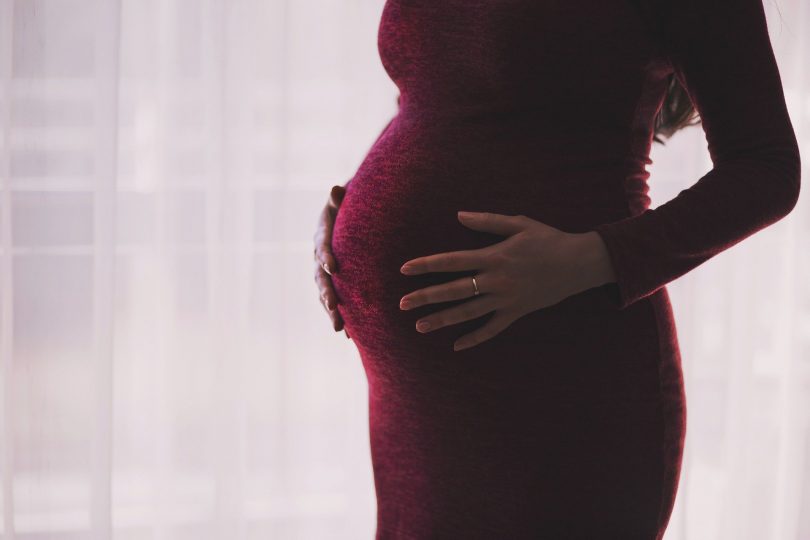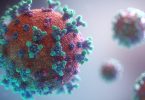By Hannah Green
Boston University News Service
2020 was a year of surprises and adjustments for 33-year-old pediatric nurse Kristina Himmer. First came the global pandemic. For the last year, Himmer has worked at Boston Children’s Hospital as a cardiac Intensive Care Unit (ICU) nurse. As she settled into this new way of life, another surprise arrived in the late summer: Himmer found out she was pregnant with her second child.
“I really could get COVID-19 at work; it’s very easy for me to get it,” Himmer said. “Tons of my coworkers have gotten it. [After becoming pregnant], I just had to implement some changes to the way that I work: I don’t take my mask down when I’m around other people. I eat by myself. I just isolate myself at work because my risk is so high.”
In December 2020, Himmer was among the first healthcare workers offered the newly approved COVID-19 vaccine. But for Himmer, there was one problem — the vaccine had not been studied in the pregnant population. Expectant mothers were excluded from the initial COVID-19 clinical trials.
As a result, there is currently no research about the vaccine’s effects on mothers or developing fetuses. The CDC says that vaccination is a “personal choice” for each pregnant person, leaving families to weigh the pros and cons for themselves.
Too Many Questions, Not Enough Answers
As a nurse, Himmer knew the risks of contracting COVID-19 while pregnant.
“One of the biggest things they say is that if you’re pregnant and you get COVID-19, you have a higher chance of being on a ventilator,” Himmer said. “When you’re pregnant, your immune system is down; it’s harder to fight infections.”
According to the CDC, pregnant people with COVID-19 have an increased risk of severe complications. This includes a greater likelihood of ICU admission, mechanical ventilation and death compared to non-pregnant women of the same age.
Some states, including Massachusetts, have listed pregnancy as a high-risk condition in their vaccination plans. An expectant mother in Massachusetts can get the vaccine in Phase 2.
But for some mothers, the lack of data about the vaccine’s impact on a developing child was a nonstarter.
After speaking with her OB/GYN and a maternal-fetal medicine specialist, Himmer decided not to get the vaccine before giving birth in March.
“I’ve done a decent amount of research and I honestly think that the vaccine probably is very safe,” Himmer said. “All of the mRNA vaccines have been very safe for pregnant people. But, I just couldn’t get over the fact that if I got this vaccine and something happened, I would feel so terrible and have this awful regret.”
Vaccine Hesitancy on a Global Scale
The majority of pregnant people in the United States have concerns about the COVID-19 vaccine safety.
In late 2020, the Human Immunomics Initiative at the Harvard T.H. Chan School of Public Health conducted a survey of 17,000 women across 16 countries. Given a 90% vaccine efficacy rate, 73% of non-pregnant women said they would get the shot. This number dropped to 52% for pregnant women.
Julia Wu was the principal investigator for this study. She said expectant mothers wanted to see more data from public health officials, especially in regard to the vaccine’s impact on fetus development.
“[The women in the study] cited [vaccine-related fear due to] the possibility of any harm to their fetuses and they were afraid that the approval might be rushed because of political reasons,” Wu said. “They also felt that there was not sufficient pregnant women-related evidence.”
The vaccine acceptance among expectant mothers was especially low in the United States. Less than 45% of pregnant respondents were open to getting the vaccine. Vaccine acceptance was highest in countries such as India, the Philippines and several Latin American countries.
Wu attributed this difference to the U.S. citizen’s relative inexperience with infectious diseases.
“We have been so successful with a lot of other infectious diseases in comparison to a lot of the middle-income countries, so we became less familiar with the horror of infectious diseases until now,” Wu said. “The developing countries [also] tend to tolerate a little more risk in terms of the vaccine simply because they have more at stake.”
Making a “Personal Choice”
Lawyer and expectant mother Amanda Risch, 33, consulted with her OB/GYN and fertility clinic doctor to learn more about the COVID-19 vaccine.
Risch is not due until July and continues to meet with clients in her downtown Boston office. Because of her exposure to the public and summer due date, she plans to get the COVID-19 vaccine before giving birth.
“All the science indicates that the risks that come along with getting COVID-19 [for] a pregnant mother are more than some of the speculative risks that come along with getting the vaccine,” Risch said.
Risch said her decision was also influenced by the stage of her pregnancy.
“The fact that I am at the halfway point also impacts my decision, as opposed to if this was the first trimester when things are so unstable in a pregnancy,” Risch said.
According to Dr. Anthony Fauci, 20,000 pregnant people have chosen to receive the COVID-19 vaccine since December. While expectant mothers have reported no health problems, there is no conclusive research about the vaccine’s impact on a developing fetus.
New research on the vaccine is in the early stages. On Feb. 18, Pfizer announced a clinical trial to study its COVID-19 vaccine in pregnant people. Until more data is available, public health officials’ advice is clear: The decision to get the COVID-19 vaccine while pregnant is a personal choice for each expectant mother.





